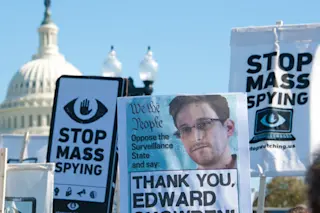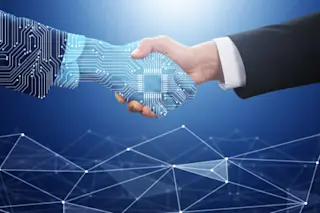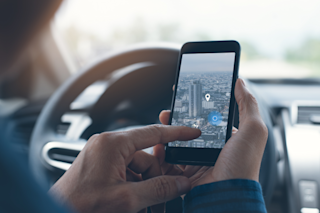Samuel Warren and Louis Brandeis, writing in the Harvard Law Review, expressed concern over privacy infringements threatened by new technology: “Recent inventions and business methods call attention to the next step which must be taken for the protection of the person, and for securing to the individual . . . the right ‘to be let alone,’ ” they wrote.
The year was 1890, and the inventions Warren and Brandeis cited were “instantaneous photographs” and devices for “reproducing scenes or sounds.” Those innovations now sound quaint, but the concerns they raised are fresher than ever.
In 2013, former National Security Agency contractor Edward Snowden created an international firestorm when he leaked top-secret documents detailing the U.S. government’s surveillance activities. In addition to providing details on foreign eavesdropping of private citizens and leaders, the government effort has included PRISM, a massive data surveillance program that gathers Internet communications from open sources and ...















